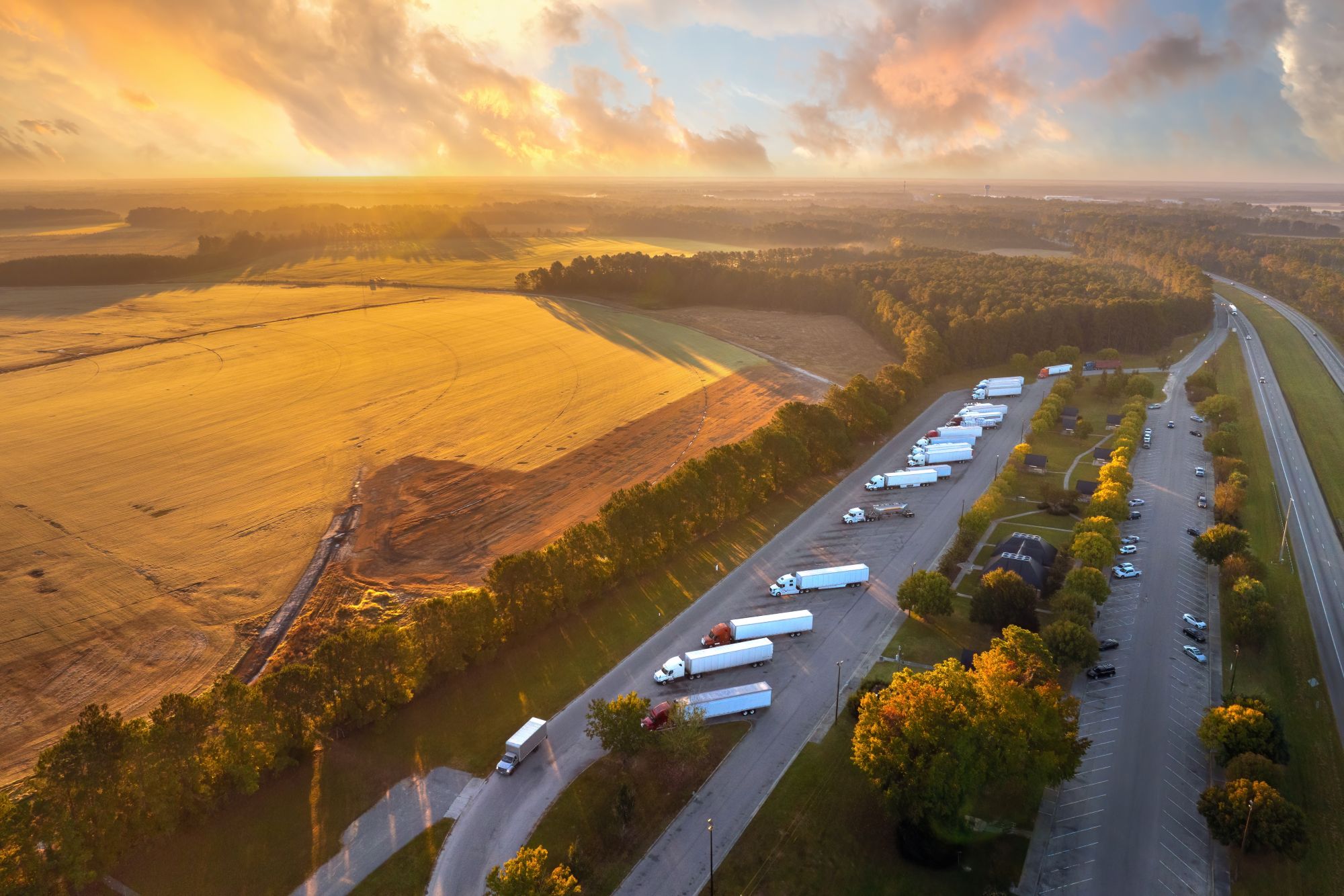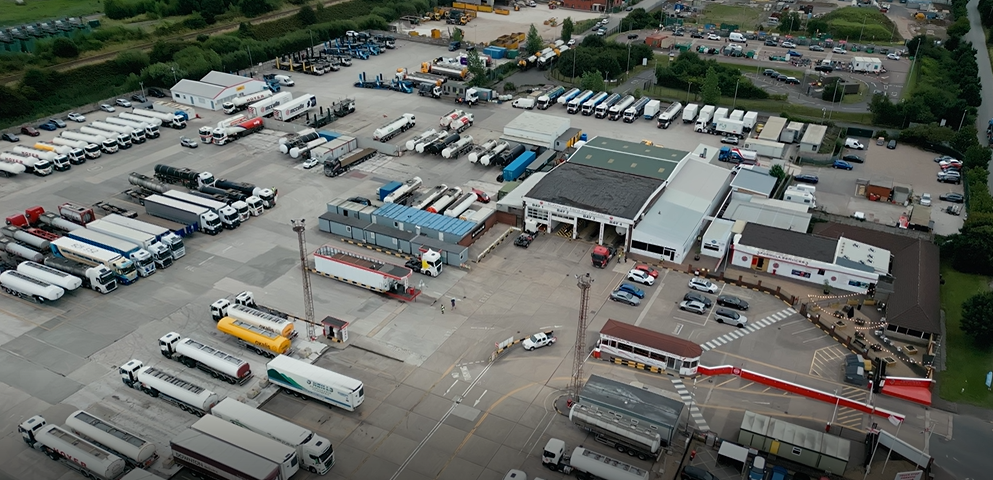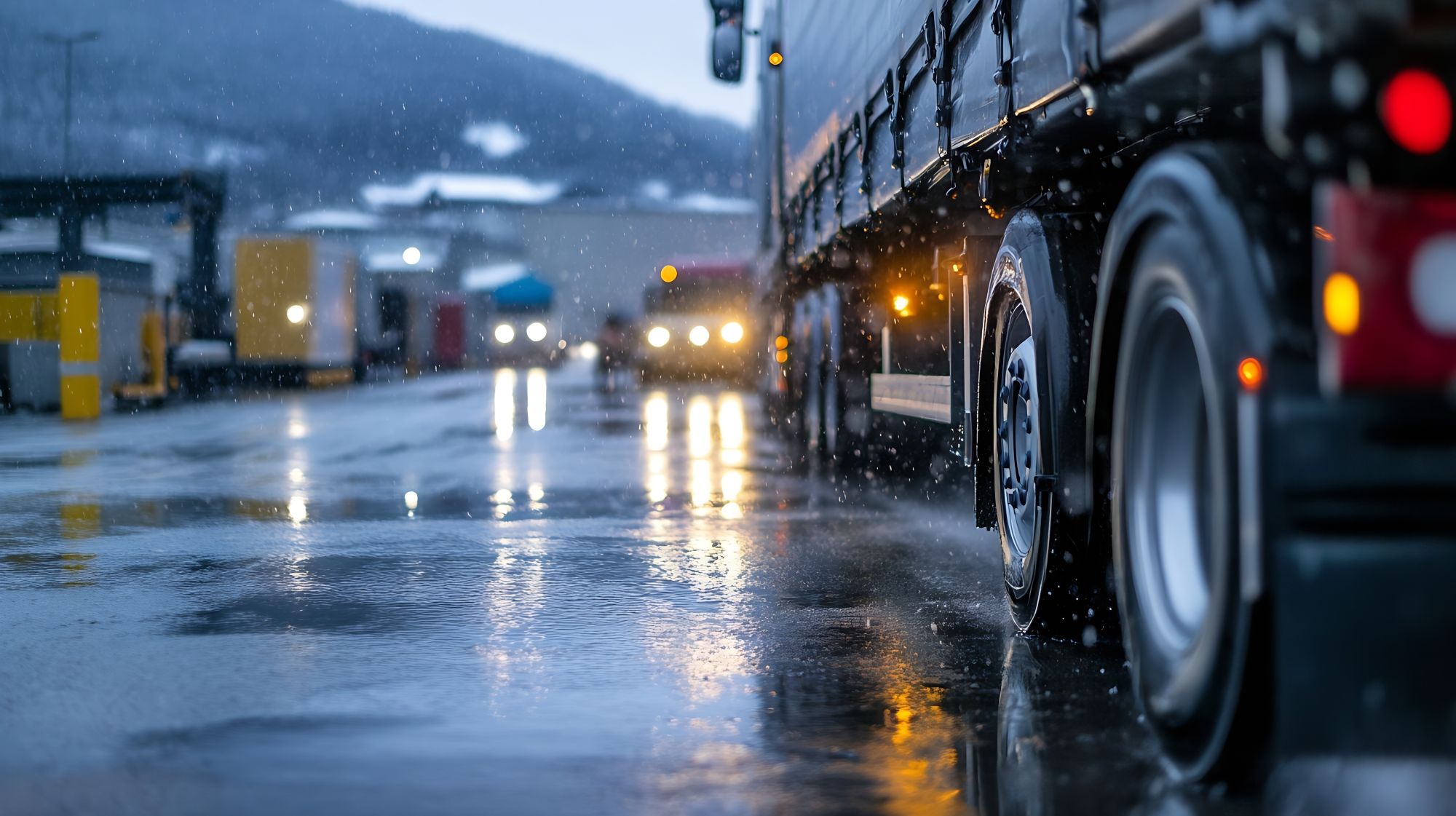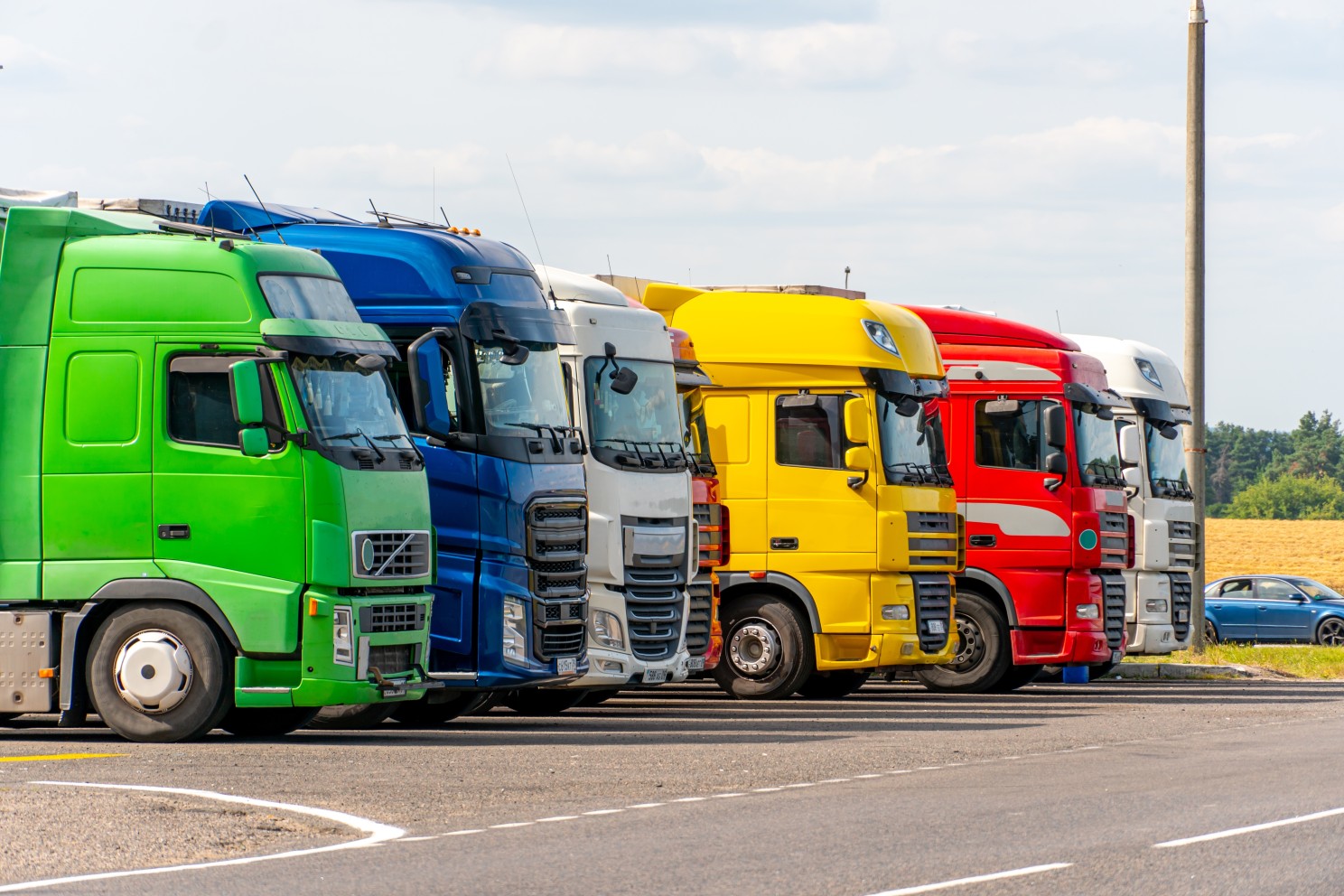
Susie Jones
Trucker tales: verhalen van de open weg
Gemaakt: 22-08-2024
•
Bijgewerkt: 22-08-2024
We willen een licht schijnen op de truckersgemeenschap en de mensen achter het stuur leren kennen.
Van helikopters die voor hun vrachtwagens landen tot auto's aan de verkeerde kant van de snelweg: kom meer te weten over de chauffeurs die jouw goederen afleveren.
Alan
Alan rijdt al 23 jaar en besloot in de sector te gaan werken nadat hij naar de vrachtwagenliedjes van Ally Thomson had geluisterd. Op de vraag wat hij het leukste aan zijn werk vindt, antwoordt hij dat het "de eenzaamheid is die vrachtwagenchauffeur met zich meebrengt - er is een volledige scheiding van het gezinsleven".
Volvo trucks zijn een grote favoriet, want hij reist door het Verenigd Koninkrijk om Amazon goederen te vervoeren. Hij zegt dat hij veel interessante producten heeft vervoerd, "de keuze is onbeperkt - denk maar aan alles wat Amazon verkoopt."
Voor chauffeurs die 's nachts parkeren, is het moeilijk om zich te vermaken tijdens de vrije tijd. Ervaren chauffeurs zoals Alan hebben hun avondroutine echter tot in de puntjes geregeld. Hij zegt dat hij "graag Sky TV kijkt via de iPad" wanneer hij 's nachts geparkeerd staat.
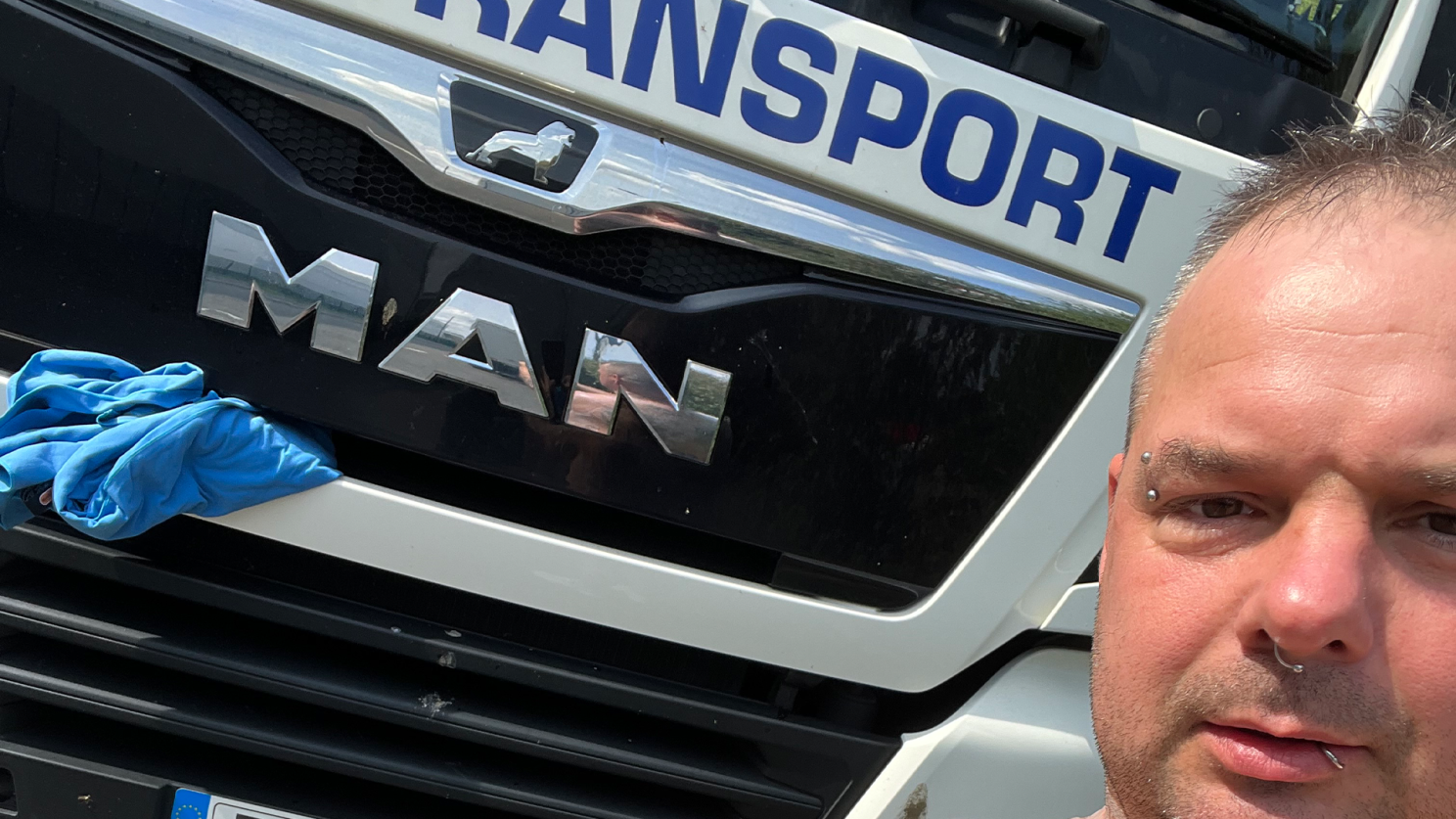
Voor bestuurders die moeite hebben om zich te vermaken achter het stuur, hebben we een lijst samengesteld met manieren om verveling te voorkomen.
Hoewel lange uren op de weg voor velen eentonig lijken, legt Alan uit dat er altijd wel iets is dat hem scherp houdt.
"Ik denk dat het gekste dat ik tijdens het rijden heb gezien een helikopter is die vlak voor me landt," legt hij uit - een verre schreeuw van de monotone reputatie die de industrie decennialang heeft omhuld.
Met 23 jaar ervaring in deze branche heeft Alan advies gegeven waardoor je parelwitte tanden er fris uit blijven zien tijdens het reizen.
Hij legt uit: "Het advies dat ik iedereen die nieuw is in de branche zou geven, is om je tandenborstel altijd opgeladen te houden."
Richard
36 jaar geleden begon Richard zijn carrière in de transportsector en keek nooit meer achterom. Hij kreeg de smaak te pakken toen hij samen met zijn twee oudere broers goederen ging bezorgen in heel Groot-Brittannië.
"Ik vind het heerlijk om een lading te krijgen en te vertrekken. Ik bepaal zelf wanneer ik pauze neem en waar ik parkeer. Onderweg zijn en door het hele VK reizen is geweldig," legt hij uit.
Tijdens zijn carrière heeft het leven op de weg hem naar Milaan, Italië gebracht - een slopende reis, zelfs voor de meest ervaren chauffeurs. Op de vraag hoe hij zich tijdens zijn reizen vermaakt, zegt hij: "Ik luister graag naar muziek en kijk films tijdens mijn vrije tijd."
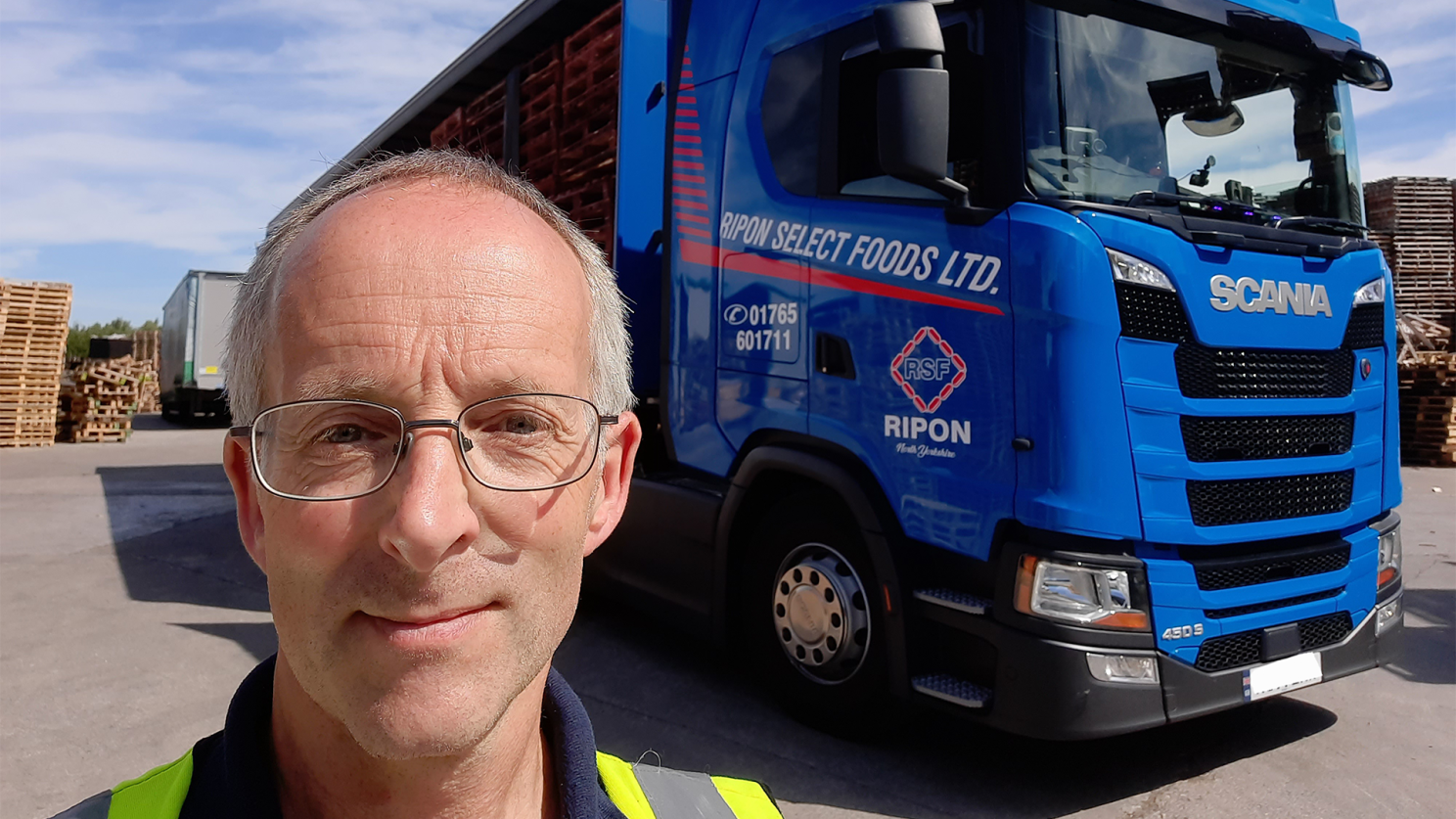
De beste truck om dit in te doen? "Het moet een Scania Next Generation 450S zijn," zegt hij.
Voor Richard zijn 30 jaar in de sector niet zonder de nodige gekke verhalen en ongewone leveringen geweest: "Ik heb een auto verkeerd zien rijden op een snelweg, toen ik van een afrit kwam. Het meest interessante dat ik achterin de vrachtwagen heb gehad is een praalwagen van de St. Wilfred's Day parade."
Hoewel hij nog steeds van de open weg houdt, zegt Richard dat daar soms een prijskaartje aan hangt. Hij geeft een goed inzicht in de realiteit van dit beroep en geeft advies aan mensen die in deze sector willen gaan werken.
"Denk goed na of dit de juiste carrière voor je is. Verwacht lange uren en het missen van veel gezinsleven."
Sean
Omdat hij opgroeide in een familie van chauffeurs, zat vrachtwagenchauffeur Sean in het bloed. 20 jaar geleden kroop hij achter het stuur en vervolgde hij zijn carrière in de transportsector.
De baan heeft veel voordelen, maar Sean houdt het meest van de vrijheid die de baan biedt. Deze vrijheid heeft hem tot in Schotland gebracht voor een zeswekelijkse dienst. Tijdens die lange reizen zijn vrienden bellen en tv kijken zijn bron van vermaak.
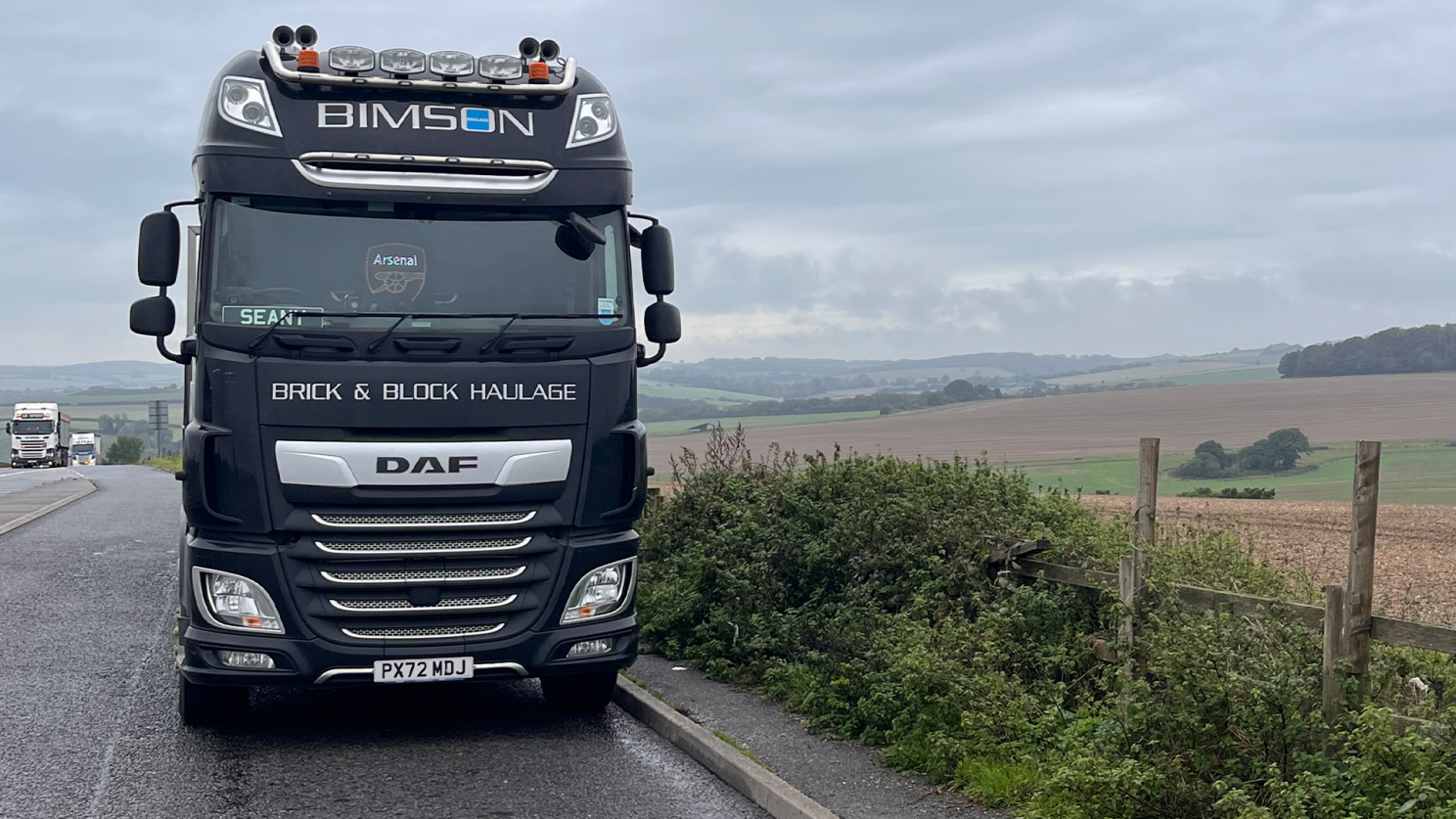
Daarnaast hebben truckstops voor Sean een cruciale rol gespeeld in de strijd tegen het isolement dat autorijden met zich meebrengt. Truckstops zijn vaak een bruisende bedrijvigheid en stellen Sean in staat om bij te praten met vrienden die hij onderweg tegenkomt.
Deze pitstops zijn de perfecte gelegenheid om gekke verhalen van andere vrachtwagenchauffeurs te horen. Net als Richard is het vreemdste dat Sean tijdens zijn reizen heeft gezien "een auto die in het donker de verkeerde kant op reed op een snelweg" - een verhaal dat maar al te vaak voorkomt in de vrachtwagenwereld.
Een DAF XF 530 is Sean's favoriete truck voor het vervoeren van bouwmaterialen door heel Groot-Brittannië. Hij raadt iedereen die op zoek is naar een carrière als vrachtwagenchauffeur aan om "er gewoon voor te gaan!
Dave
Dave rijdt al 30 jaar op trucks en heeft tot in Denemarken en Spanje gereisd. Als hij niet op reis is in zijn favoriete truck, een Volvo FH, kijkt hij graag soaps in het comfort van zijn cabine.
"Het gedrag van sommige chauffeurs heeft me een aantal gekke verhalen opgeleverd," legt hij uit. Maar toen we Dave vroegen naar het meest interessante ding dat hij achterin zijn truck heeft gehad, hield hij zijn mond - "dat is topgeheim," zegt hij.
Na 30 jaar goederen vervoerd te hebben, heeft Dave het een en ander geleerd over de transportwereld. Hij geeft een goed advies aan degenen die hun carrière in de sector willen opstarten - "zorg ervoor dat je je ergens in specialiseert".
Alastair
Alastair is betrekkelijk nieuw in de sector en besloot voor een carrière als vrachtwagenchauffeur te kiezen om zichzelf bezig te houden na zijn pensionering. Met vijf jaar onder zijn riem geniet hij het meest van de afwisseling van het beroep.
In die tijd heeft Alastair door het Verenigd Koninkrijk en Europa kunnen reizen: "Ik ben naar Inverness, Kopenhagen, Lissabon, Boedapest en Rome geweest," zegt hij.
Om verveling te voorkomen luistert Alastair graag naar "Radio 4, LBC en 5 Live".
Reizend door Europa heeft hij al heel wat ongewoon gedrag van andere weggebruikers meegemaakt. Maar dichter bij huis moest hij zijn truck door "de demonstraties in Londen manoeuvreren. Het was waarschijnlijk het gekste wat ik heb meegemaakt," legt hij uit.
Voor de 007-fans vertelt Alastair over de keer dat hij topgeheime items moest vervoeren.
"Het meest interessante dat ik achterin de truck heb gehad zijn waarschijnlijk James Bond-tentoonstellingsitems," zegt hij.
Hoewel Alastair nog niet zo lang in deze branche werkt, heeft hij wel een paar woorden voor nieuwkomers.
"Een advies dat ik zou geven aan iemand die erover denkt om in de transportwereld te gaan werken, is om kalm te blijven."
Sean V
Sean's liefde voor de weg komt voort uit de vele zomervakanties die hij met zijn vader doorbracht in zijn truck. Na 30 jaar rijden blijft zijn liefde voor het autorijden groeien.
"Wat ik zo leuk vind aan mijn werk is dat ik alle mooie plekken in het Verenigd Koninkrijk en Europa heb gezien," legt hij uit. Het is een baan die hem naar verschillende bestemmingen heeft gebracht - Rome is het verste dat hij heeft gereisd.
Als hij de steden niet verkent, vermaakt Sean zich graag met tv-kijken, zijn iPad en, tot voor kort, gamen in het comfort van zijn eigen taxi.
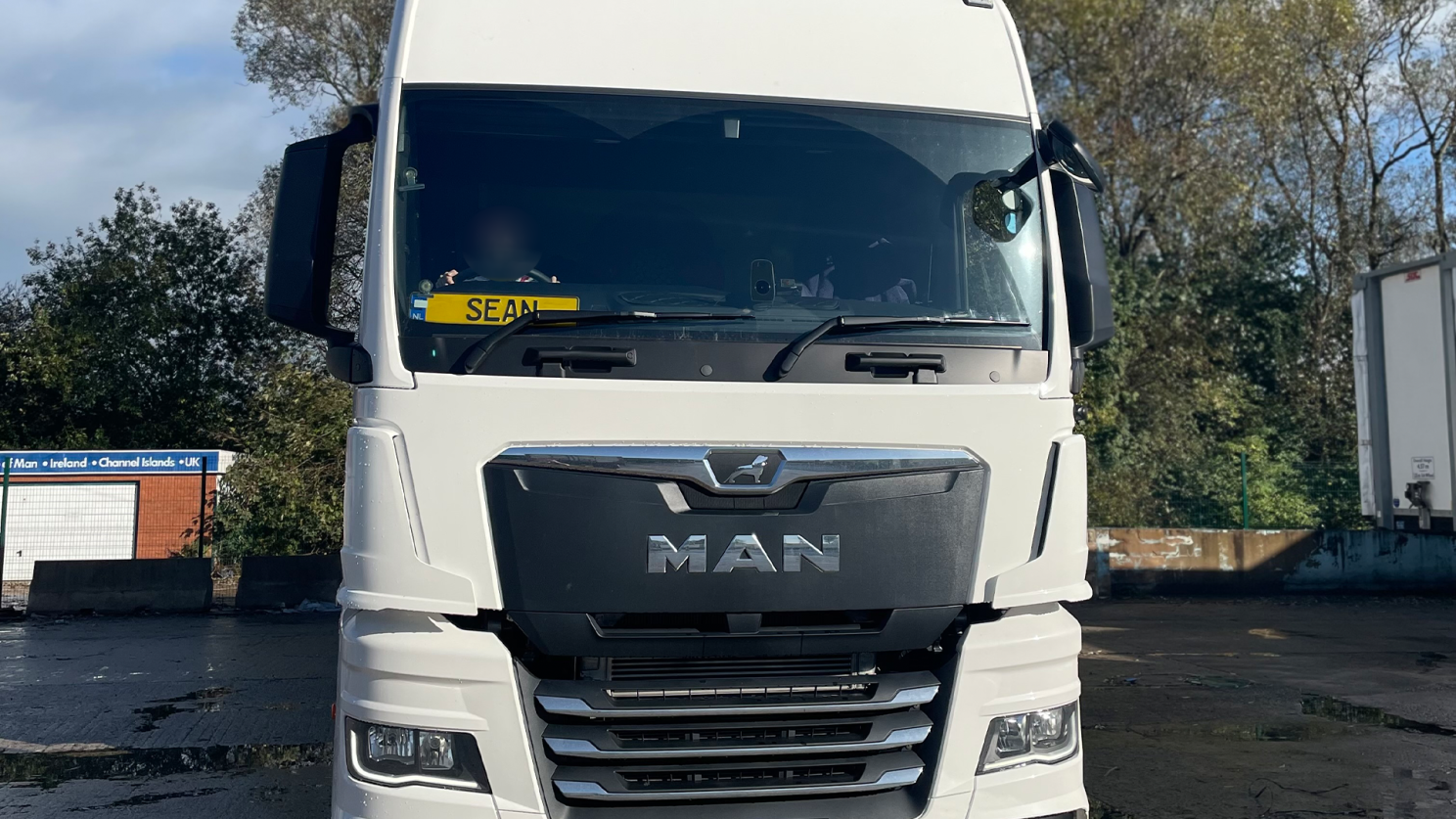
Het gekste dat hij onderweg heeft meegemaakt?
Helaas is Sean een andere getuige van iets dat maar al te vaak voorkomt onder vrachtwagenchauffeurs - "een auto die verkeerd rijdt op de snelweg," legt hij uit.
Tijdens Sean's 30-jarige carrière zegt hij dat DAF trucks zijn favoriet waren om mee te rijden en dat het interessantste dat hij vervoerde "specialistische medische apparatuur" was.
Seans liefde voor de sector weegt zwaarder dan sommige negatieve aspecten van het werk. Maar voor degenen die hun carrière in de transportsector een kickstart willen geven, heeft hij de volgende wijze woorden:
"Als je erover denkt om in deze sector te gaan werken, verwacht dan lange werkdagen."
Meld je vandaag aan bij SNAP
SNAP maakt uw leven gemakkelijker door u aan te sluiten op ons uitgebreide netwerk van wegtransportdiensten. Meld je vandaag nog aan
